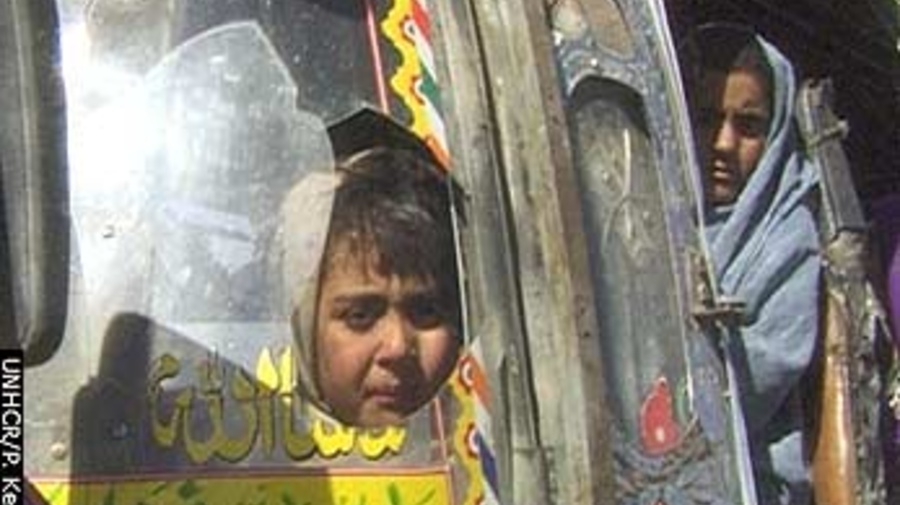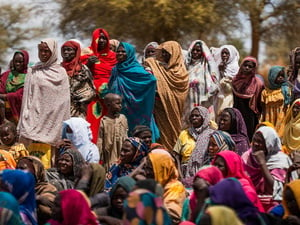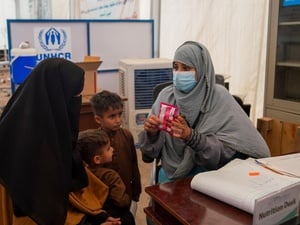UNHCR's plan of action for Afghanistan
UNHCR's plan of action for Afghanistan

Recent Afghan arrivals in Pakistan.
GENEVA, Nov. 27 (UNHCR) - The U.N. refugee agency Tuesday unveiled a multi-million-dollar Plan of Action to help nearly 900,000 uprooted Afghans, both inside and outside the country, through the middle of next year.
"The rapidly unfolding events in Afghanistan have provided the humanitarian community with new opportunities to help millions of Afghans who have suffered far too much for far too long," High Commissioner Ruud Lubbers said. "We have to move fast. We need to closely coordinate our work and we must be as creative and as flexible as possible."
The Plan of Action covering agency activities through mid-2002 highlights several major areas:
- Protecting as many as 500,000 uprooted and other vulnerable Afghans inside the country and helping them to return to their homes.
- Assisting 300,000 refugees in Pakistan and 80,000 in Iran who fled to those countries in the wake of the Sept. 11 attacks in the United States; being prepared for any further exodus from Afghanistan and eventually helping refugees return to their homes.
In addition to these 'new' refugees there were already more than 3.5 million Afghans in Pakistan and Iran.
The estimated budget for the updated regional plan from Oct. 1 through the first half of 2002 was $181.8 million - an estimated $140 million being post-September emergency requirements which would be covered under a special supplementary budget.
Lubbers said the plan recognized a new reality on the ground in Afghanistan: the movement of populations in several directions - within the country, into neighbouring states, and from surrounding nations back into Afghanistan.
Operationally, UNHCR expected to re-establish its presence in five major cities, Kabul, Mazar-i-Sharif, Heart, Kandahar and Jalalabad and expand from 12 to 22 the number of field offices to ensure an extensive presence in all key geographic regions.
The number of national staff will increase to 267 by mid-year, including the recruitment of many more women who were banned from working during the rule of the Taliban.
Field staff reported there was renewed interest in repatriation among many of the longtime 3.5 million Afghan refugees in the region. There have been some small 'spontaneous' returns from among this group already, but larger numbers were not expected to return home until there was further military and political stabilization in Afghanistan and until the start of spring next year. However, UNHCR and other organizations have begun comprehensive repatriation and reintegration planning exercises in anticipation of major returns in the not too distant future.









